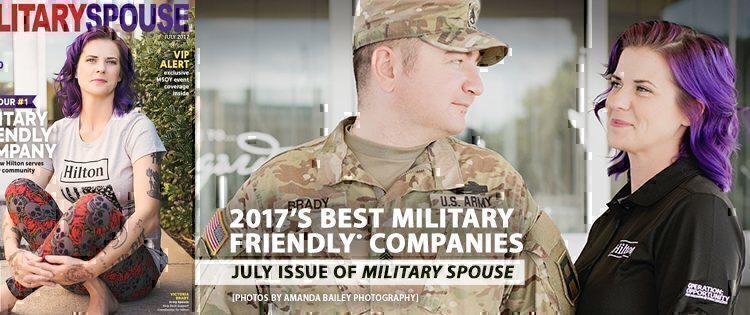Holistic and Purpose Driven
With the advent of military transition services dating back to the return of soldiers from service in World War II, it was surprising to learn Hilton’s veteran employment initiative was only formally launched in 2013. In conversation and in reviewing the data, it was clear that Hilton had a long history of supporting the military community and hiring veterans and military spouses. The difference was they didn’t see a point to launching a program without a specific goal — in this case a goal to hire 10,000 veterans by 2018, a goal they exceeded in 2016 and which has since been reset to 20,000 by 2020.
It’s important, I believe, to understand the power of Hilton’s approach and in doing so to understand the purpose of the Military Friendly® Companies program. They didn’t start serving veterans and the military community in 2013; they have a long history of commitment to the military community. Rather, they only announced a military hiring initiative when they felt they had a goal that was meaningful and one they were ready to achieve. In the decade following combat operations following the terrorist attacks of 9/11, tens of thousands of organizations have launched veteran and military service programs, some with lofty goals, some with none at all. The lesson to take from Hilton is that a corporate military community program should be approached with the same care and detail as every other business investment, not as a PR ploy, but a real investment in processes that makes sense for the company culture and that fit the company’s mission and needs as a business.
Melissa Stirling led the small founding team, which began as a “clearinghouse” for military and veteran initiatives, and was able to provide insight into their thought process:
“When we first started we tried to explain to a service member what a career in hospitality might look like and what we realized is that a hotel is like a Navy ship or an Army base … it’s a city under one roof.” Her approach didn’t stop there, as she noted, “We do change management on the flip side, too, like our HR team might have a question about what the skill set of a soldier might be … we explain to them that it’s the largest organization in the world and there are all kinds of departments and skills that someone might do … We needed a paradigm shift on both sides.”
Interestingly, like Conrad Hilton who initially set out to buy a bank only to decide on the wiser choice of purchasing a hotel, their instincts and insights indicated that if they were going to make a business decision to invest in a formal military program, the program shouldn’t be limited to employment, but should be, as Lauren explained, “holistic and company-wide.”
The result is indeed a comprehensive program with an efficient self-described central command or “clearinghouse” that coordinates efforts from repurposing hotel furniture for veterans and military families to organizing a global month of service, building partnerships with state and federal programs, development of work-from-home opportunities for military spouses with career growth potential to veteran-owned business supplier sourcing initiatives.
What Hilton has created is not a separate cost center for military programs that would be vulnerable to budget decisions, but a lean, functional, leadership team with executive support that leverages the power of the people across their entire global footprint. Their goals are clear, their mission aligns with the direction of the company and as such, they have achieved in a very short period of time what the majority of companies of even similar size may never achieve.








